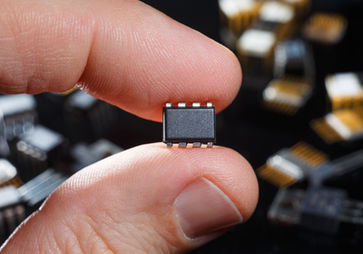Nanodiamonds (ND)





Highest Quality, Purity & Consistency
About Nanodiamonds
Nanodiamond additives can enhance functionality and properties of traditional materials, improving industrial processes-efficiency in many fields:
-
Polishing, Lapping & Abrasives
-
Polymer & Resin Composites
-
Thermal Interface & Coolants
-
AM, AMES, MEMS, PCB & GSM
-
Adhesives, Inks & Paints
-
Rheology & Tribology
-
Catalysts & Inhibitors
-
Lubricants & Coating
-
Ceramics & Textiles
-
3D, More*



What are Nanodiamonds?
Nanodiamonds are carbon nanoparticles with diamond cubic lattice core and hybrid graphene-like or amorphous carbon surface structure, possessing diamond’s extreme physical, mechanical, chemical, electrical and optical properties. Nanodiamonds chemically-active multi-faceted surface provides robust versatile compound delivery-systems for a wide range of applications.
Nanodiamonds scale
A nanometer (nm) is one-billionth of a meter. The majority of nanodiamonds are sized ≈4-6 nm, have extremely high surface area to volume ratio (≈300-500 m²/g, about the surface size of a basketball court per 1 gram), with varied tunable surface functional groups and high adsorption capacity.
-
A human hair is approximately 90,000 nm wide
-
A sheet of paper is about 100,000 nm thick
-
There are 25,400,000 nm in one inch
A tiny Ant
(4 mm -millimeter)
is a
Million times (X 1,000,000) larger than
a nanodiamond particle
(4nm - nanometer)
Nanodiamonds Features
Adding tiny quantities of disaggregated nanodiamonds with controlled surface chemistry drastically enhances performance and capabilities, enabling the creation of novel materials, advanced composites, and multifunctional applications. Nanodiamond ultrafine particles impart unique diamond characteristics to traditional materials:

Nanodiamonds characteristics include:
-
Robust optical, magnetic & electronic properties
-
Extreme mechanical hardness & wear resistance
-
High thermal conductivity & adsorption capacity
-
High core stability & surface tunable reactivity
-
High Bio-compatibility and non-cytotoxicity
-
Extreme chemical & radiation resistance
-
Hydrophilic ⬧ Low dielectric permittivity
-
Robust electrical insulation resistance
Strategic partnership
Neo Composite Ltd and Ray Techniques Ltd established a strategic partnership.
Ray Techniques, a global leader in fabrication of advanced nanodiamond additives, developed a patented controlled process for nanodiamonds synthesis by laser, proprietary methodologies and custom-tailored formulations of various nanodiamond additives.
The joint Ray and Neo teams will collaborate in creating customized innovative solutions and advancing the global markets reach of nanodiamonds applications*.

Advanced solutions to ND industry challenges

Nanodiamonds industry challenges
Nanodiamonds are mostly produced by detonations in special metal blast chambers
ND industry:
-
Very dangerous, expensive & polluting production
-
Low capacity, complex & uncontrollable process
-
Lacking mixing & colloidal dispersion technology
-
Low production yields & inconsistent outcome
ND product:
-
Low purity, contaminated with metals & graphite
-
Complex, erratic modification & disaggregation
-
Agglomeration ⬧ Non-consistent size & shape
-
Insufficient number of industrial formulations
Ray advanced Nanodiamonds industry solutions
Ray Technique’s patented laser synthesis process, know-how for disaggregation of nanocarbons and production of stable colloids, delivers superior solutions that are compatible with standard industrial operations & storage processes, simple and ready-to-use:
ND industry:
-
Production is safe, cost-efficient & eco-friendly
-
High-capacity, efficient & Controllable process
-
Customizable & highly scalable production
-
High production yield & Consistent quality
ND products:
-
Highest quality & purity ⬧ Higher concentration
-
Consistent attributes, properties, size & shape
-
Wide range of tunable industrial formulations
-
Better dispersion & higher colloidal stability

Neo/Ray ND applications for the global markets
Our advanced tunable nanodiamond additives can drastically enhance manufacturability, performance, functionality, processability, productivity, durability and lifespan in a wide range of applications:
Some examples:

Electronic & Electrical devices
PCB, 3D, AM, AMES, MEMS, GSM
Significant increase in efficiency, reliability, durability & lifespan ⬧ PCB size & cost reductions

Enhance clean/renewable energy
Storage capacity & lifespan; Production safety & efficiency (wind, solar & nuclear); Durability

Medical, Biotechnology, R&D
Enhanced, efficient & precise drug/gene delivery ⬧Tissue engineering ⬧Imaging contrast agents

Manufacturing productivity & efficiency
AM (Additive Manufacturing)
Enhance production, performance & lifespan of machines ⬧Improve materials functionality






















